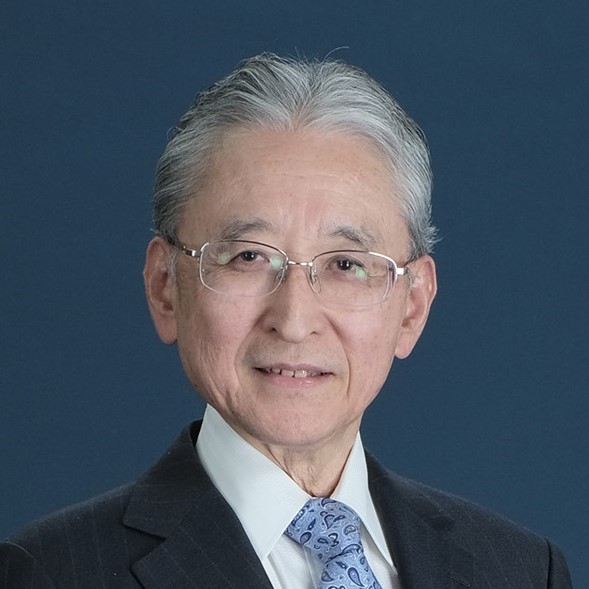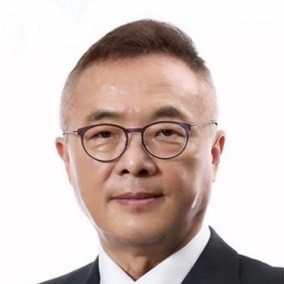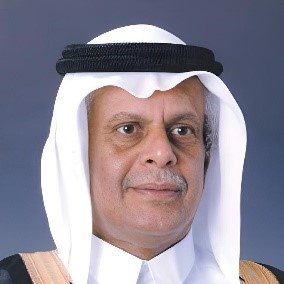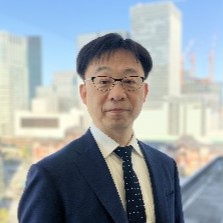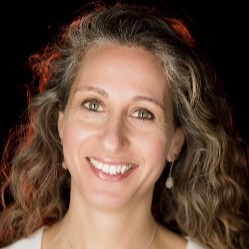ICEF2024 Program
How to Live within the Planetary Boundaries
through Green Innovation
How to Live within the Planetary Boundaries
through Green Innovation
Wednesday, October 9 - Thursday, October 10
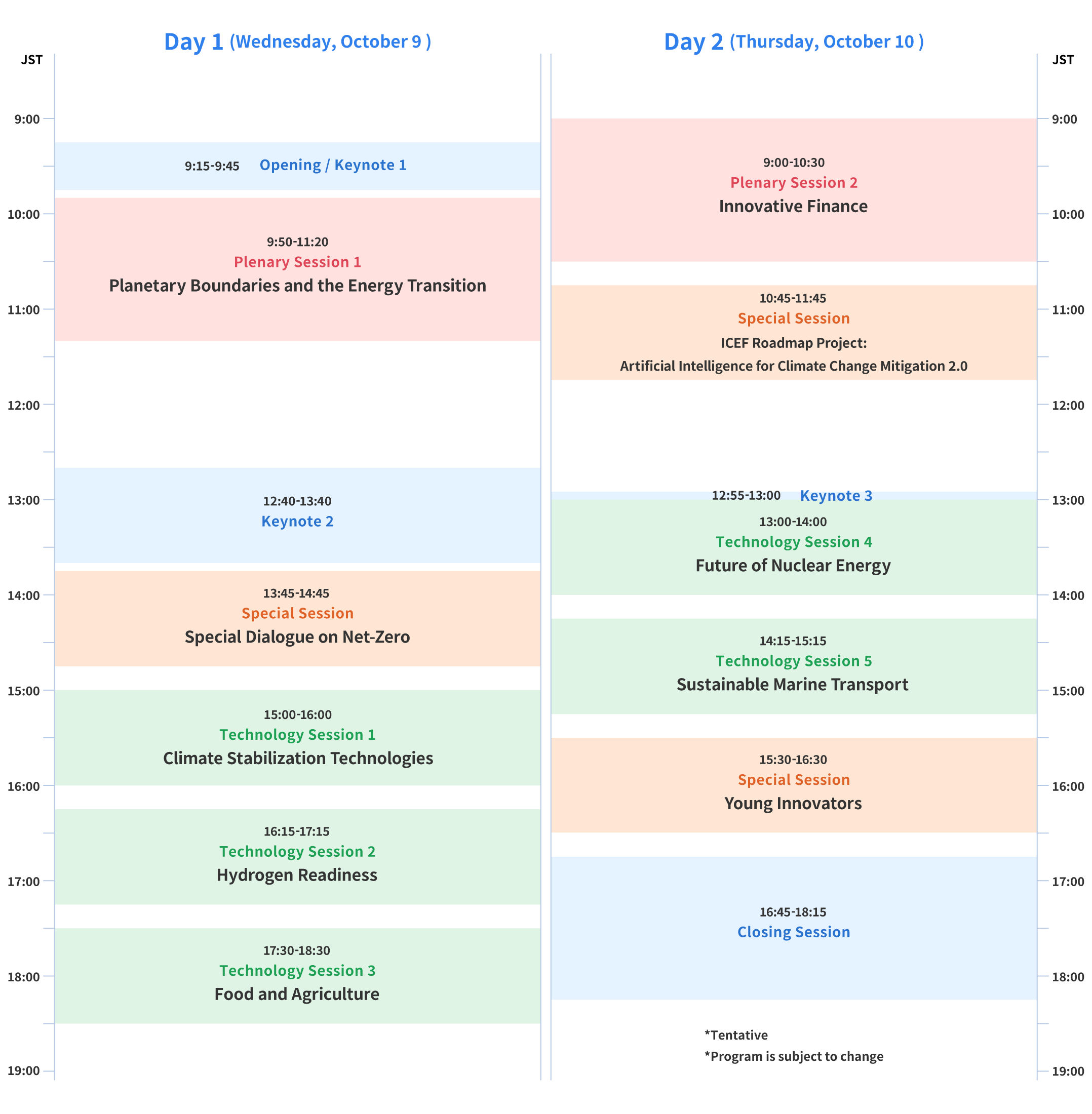
Wednesday, October 9
Opening Session
9:15 - 9:45
Opening Session
Opening Remarks by
IWATA Kazuchika
(State Minister of Economy, Trade and Industry, Japan)
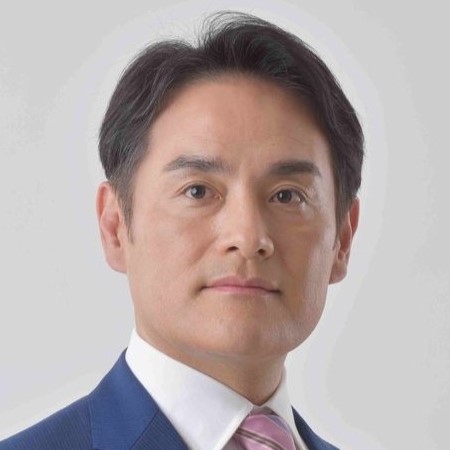
Opening Remarks by
TANAKA Nobuo
(Chair of ICEF Steering Committee)

Keynote Sessions
9:15 - 9:45
Keynote 1
Prof. Dr. Johan F. Rockström, the proponent of the concept of “Planetary Boundaries,” which defines safe areas of activity and boundaries within which humans can survive, will be invited to speak on the severity of the current boundaries and innovations to achieve carbon neutrality in light of the ICEF2024 theme, “How to Live within the Planetary Boundaries through Green Innovation.”
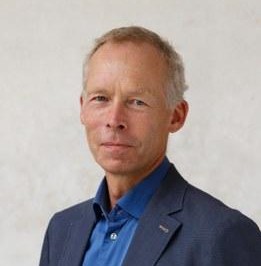
Johan Fredrik Rockström
Director, Potsdam Institute for Climate Impact Research
Professor, Institute of Earth and Environmental Science at Potsdam University
Professor, Water Systems and Global Sustainability at the University of Stockholm
Plenary Session 1
9:50 - 11:20
Planetary Boundaries and the Energy Transition
Global environmental change has advanced significantly, with the global average temperature escalating over the years, culminating in the highest recorded level in 2023. The concept of planetary boundaries, established by the Stockholm Resilience Centre, comprises nine boundaries. These boundaries regulate the stability and resilience of Earth's systems and can instigate substantial environmental alterations that threaten our known way of life. In 2023, six of these nine boundaries were acknowledged to have been transgressed.
The urgency to act is paramount to comprehend the meaning of sustainability within a finite Earth system. The implications of the intricate and diverse global supply chain sectors, along with cross-sectoral interactions resulting in the depletion of natural resources on a global scale, require elucidation. It has been posited that material and energy flows might traverse organizational, administrative, and geographical boundaries, thereby instigating the transfer of environmental problems, the propagation of detrimental practices, governance issues, and, in certain circumstances, cross-border conflicts.
In light of the most recent updates on planetary boundaries, this session aims to evaluate the current condition of the planet, identify existing challenges, and deliberate on the requisite policies and innovations to construct a sustainable future.

Sally M. Benson
ICEF Steering Committee;
Professor, Energy Science and
Engineering, Stanford University;
Deputy Director for Energy and Chief
Strategist for the Energy Transition,
White House Office of Science and
Technology Policy

TANAKA Nobuo
Chair, ICEF Steering Committee;
Former Executive Director, International Energy Agency (IEA);
CEO, Tanaka Global, Inc

Hoesung Lee
ICEF Steering Committee;
Former Chair of the Intergovernmental
Panel on Climate Change (IPCC);
President, Carbon Free Alliance

Johan Fredrik Rockström
Director, Potsdam Institute for Climate Impact Research
Professor, Institute of Earth and Environmental Science at Potsdam University
Professor, Water Systems and Global Sustainability at the University of Stockholm
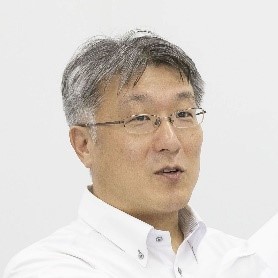
KAWAMOTO Tohru
Principal Researcher, AIST (National Institute of Advanced Industrial Science and Technology);
Director, Nanoblue Inc.

ISHII Naoko
Special Presidential Envoy, The University of Tokyo;
Director, Center for Global Commons;
Professor, Institute for Future Initiatives

Maja Groff
Convenor, Climate Governance Commission;
Chair, Planetary Governance Program, The New Institute;
Senior Treaty Advisor, Integrity Initiatives International
Keynote Sessions
12:40 - 13:40
Keynote 2
Addressing the issue of energy security has become even more urgent in view of the increased geopolitical risk of recent years, including the invasion of Ukraine and rising tensions in the Middle Eastern situation. On the other hand, measures to solve global environmental problems are also necessary, as seen, for example, in the debates over climate change in the European Parliament elections and the Presidential election in the United States. In this session, Ms. Helle Kristoffersen from Total Energies, and Mr. SADAMORI Keisuke, Director of Energy Markets and Security of the International Energy Agency (IEA) have been invited to discuss how to balance energy security and global environmental measures/climate change, as well as what kinds of innovation will be needed to achieve climate goals, based on assessments of the energy markets of the future by the Middle East/Qatar and oil majors.
Please be informed that Mr. Abdullah Bin Hamad Al Attiyah, who was scheduled to speak, has suddenly had to cancel his attendance.

TANAKA Nobuo
Chair, ICEF Steering Committee;
Former Executive Director, International Energy Agency (IEA);
CEO,Tanaka Global, Inc
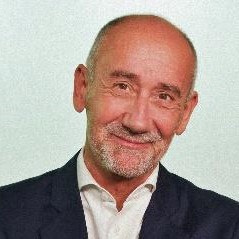
Jean-Eric Paquet
Delegation of the European Union to Japan, Ambassador of the European Union to Japan
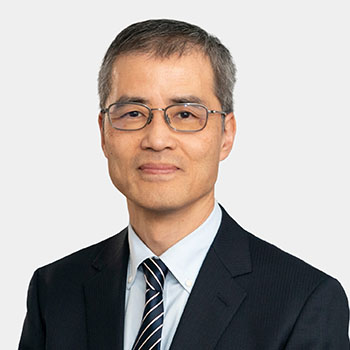
SADAMORI Keisuke
Director, Energy Markets and Security,International Energy Agency

Helle Kristoffersen
Member of the Executive Committee,President Asia, TotalEnergies
Special Sessions
13:45 - 14:45
Special Dialogue on Net-Zero
Various paths to global green innovation have been shared through different perspectives, including state-of-the-art technologies, policies, and international cooperation. Decarbonization targets have been declared by numerous countries and companies, and they are stepping up their efforts to achieve a greener transition. In order to achieve these goals, it is essential to examine whether progress is being made towards decarbonization in reality and identify any difficulties that may exist.
The aim of this session is to gain a deeper understanding of the reality of green transition, focusing on carbon emission reduction achieved since the Kyoto Protocol and the feasibility of achieving net-zero by 2050.

TANAKA Nobuo
Chair, ICEF Steering Committee;
Former Executive Director, International Energy Agency (IEA);
CEO,Tanaka Global, Inc
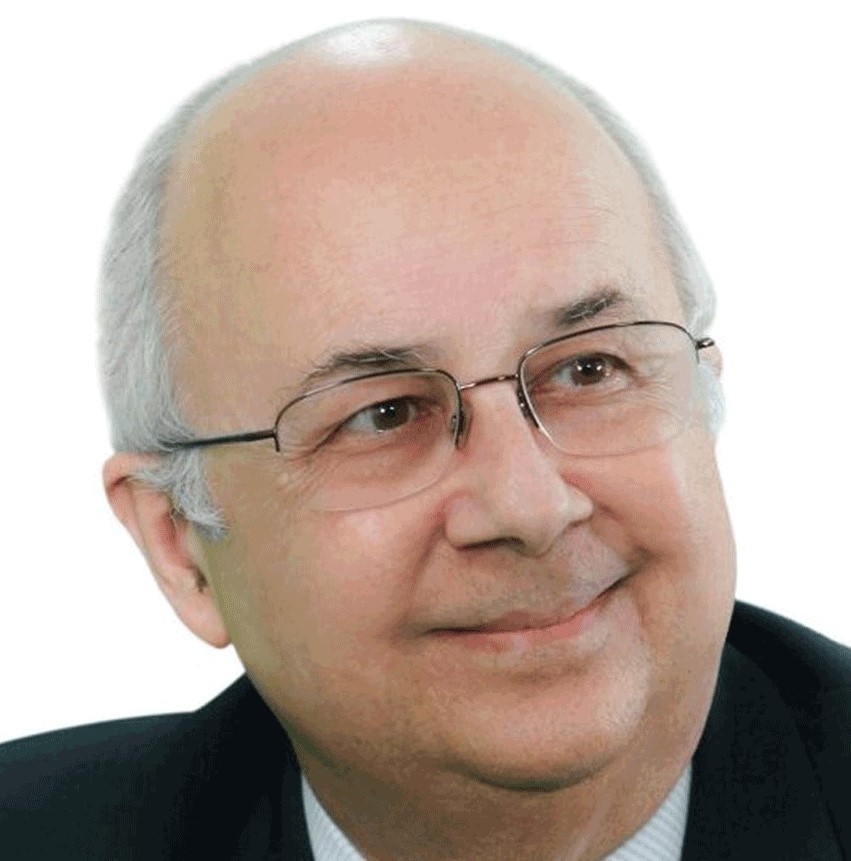
Ismail Serageldin
ICEF Steering Committee;
Co-Chair of the Board of Nizami Ganjavi International Center (NGIC);
Emeritus Librarian of Alexandria;
Former VP of the World Bank

Vaclav Smil
ICEF Steering Committee;
Distinguished Professor Emeritus, University of Manitoba
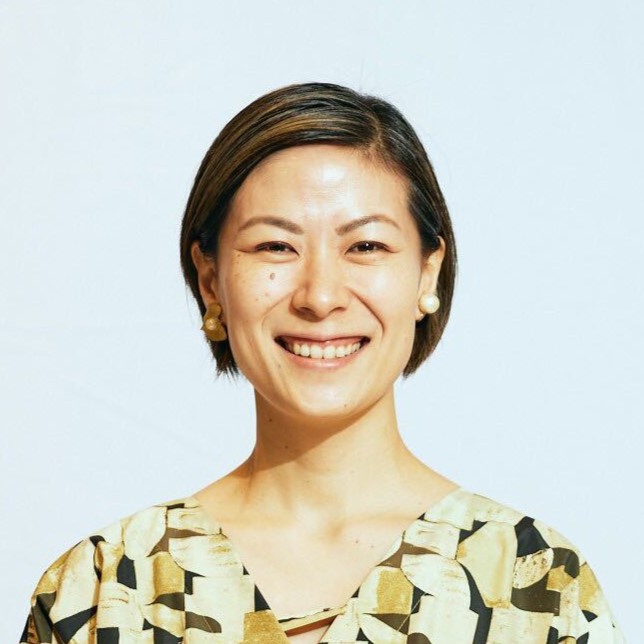
SAKANO Akira
ICEF Steering Committee;
Representative Director, Zero Waste Japan;
Co-Founder, Green innovation;
Director & CSO, ECOMMIT Co.,Ltd.

Hoesung Lee
ICEF Steering Committee;
Former Chair of the Intergovernmental
Panel on Climate Change (IPCC);
President, Carbon Free Alliance
Jarand Rystad
CEO, Rystad Energy
Technology Session 1
15:00 - 16:00
Climate Stabilization Technologies
The current rate and scale of greenhouse gas (GHG) emission reduction is insufficient for meeting the goals negotiated in the Paris Agreement to keep the global mean temperature well below 2℃, and if possibly to 1.5℃, above the pre-industrial levels. Even in the desired case of rapid global emissions reductions toward net-zero by the middle of the century, these ambitious targets are likely to be exceeded before stabilization to the negotiated levels can be achieved resulting in an 'overshoot'. Several technological options have been proposed to reduce the extent and duration of the emissions overshoot and achieve climate stabilization. Consequently, developing and introducing climate stabilization technologies is becoming ever more important.
Highest priority should continue to be on emissions mitigation and adaptation to climate change.
Climate stabilization technologies include the net-negative emissions.
Important new technologies are known as carbon dioxide removal (CDR) such as DACCS (direct capture and storage of CO2 from the atmosphere), weathering promotion, carbon storage by biochar application, and carbon fixation by seaweed and seagrasses.
These new technologies offer multiple benefits for the climate and the people but also pose risks such as a possibility of conflicts with enhancing biodiversity. There are a number of technological challenges for these technologies that need to be overcome, and there is also an aspect that the diffusion of some technologies is not progressing due to issues such as introduction costs.
In this session, we will discuss the perspectives of CDR and other climate stabilization technologies, solutions for promoting their introduction, and the international policy and governance frameworks.
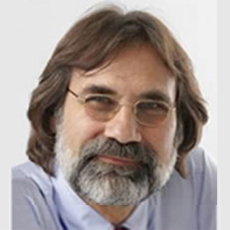
Nebojsa Nakicenovic
ICEF Steering Committee;
Vice Chair of the Group of Chief Scientific Advisors (GCSA) to the European Commission;
Honorary and Emeritus Scholar, International Institute for Applied Systems Analysis (IIASA);
Emeritus Professor of Energy Economics, Vienna University of Technology (TU Wien)

KURODA Reiko
ICEF Steering Committee;
Designated Professor, Frontier Research Institute,
Chubu University;
Professor Emeritus, The University of Tokyo;
Member, G7 GEAC (Gender Equality Advisory Council) 2023
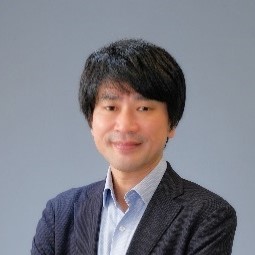
YAMADA Hidetaka
Professor, Kanazawa University
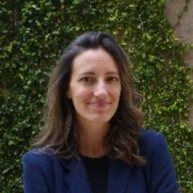
Holly Jean Buck
Associate Professor, University at Buffalo
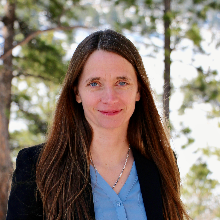
Simone Tilmes
Project Scientist Ⅲ, National Center for Atmospheric Research
Technology Session 2
16:15 - 17:15
Hydrogen Readiness
Many countries in the world are progressing towards a CO2 free social system by 2035 or 2040. In this situation, low-carbon hydrogen has the potential to play an important role in decarbonizing many sectors including heavy industry, heavy duty transportation and power. Extensive infrastructure will be required for that purpose, including pipelines, power plants and hydrogen storage facilities. In Germany and some other countries, there is a dialogue about whether gas power plants which receive state aid are “hydrogen ready,” with a need for clear definitions. More broadly, countries around the world are considering how to transition existing infrastructure to the use of low-carbon hydrogen and the types of technologies that will be needed as this industry scales. Now a days, Technological innovation projects to encourage the transition of infrastructure to hydrogen-ready is underway in all over the world. For instance, a Japanese company, a U.S. company, and a French company collaborated to develop pipeline technology. In addition, the Indian government supports pilot projects in areas such as steel, long-range heavy-duty mobility, shipping, and energy storage, where fossil fuels and fossil-based feedstocks are replaced with green hydrogen. The session will discuss the potential of the low-carbon hydrogen to realize net zero society and its challenges to achieve hydrogen ready.
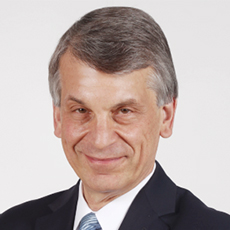
David Sandalow
ICEF Steering Committee;
Inaugural Fellow, Center on Global Energy Policy, Columbia University;
Co-Director, Energy and
Environment Concentration,
School of International and Public Affairs, Columbia University
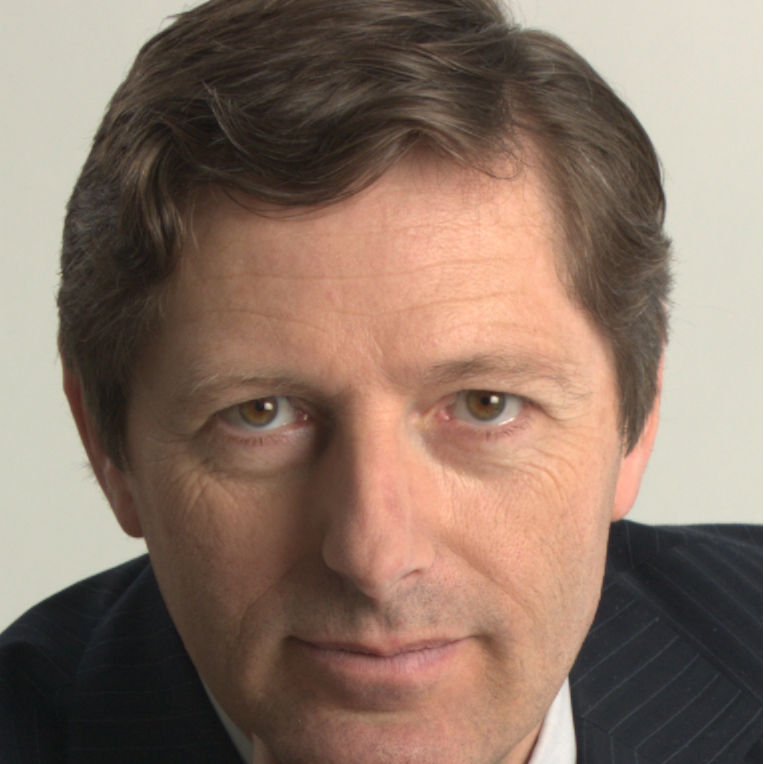
Georg Erdmann
ICEF Steering Committee;
Retired Chair of Energy Systems, Faculty of Process Engineering, Berlin University of Technology;
President of the Board, KSB Energie AG, Berlin
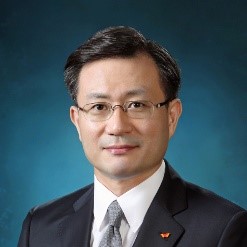
JJ Yu
Vice Chairman, SK Group;
CEO, SK Americas;
CEO, SK On
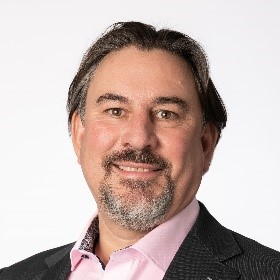
Roland Roesch
Director, IRENA Innovation and Technology Centre

Shi Chen
Postdoctoral Researcher, Carnegie Science
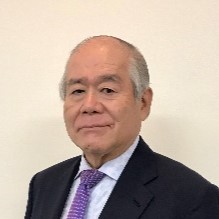
MURAKI Shigeru
President, Clean Fuel Ammonia Association
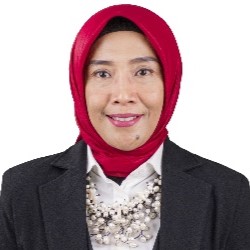
Eniya Listiani Dewi
Directorate General, New and Renewable Energy and Energy Conservation, Ministry of Energy and Mineral Resources of Indonesia (ESDM)
Technology Session 3
17:30 - 18:30
Food and Agriculture
At the COP28, for the first time ever, a leader’s level declaration (COP28 UAE Food Declaration) was issued focusing on the interactions of food systems and climate change. This declaration advocates for the promotion of innovation aimed at enhancing sustainable productivity with the objective of sustainable development and fortification of climate change response in the food, agriculture, forestry, and fisheries sector as well as encouraging the requisite shifts in sustainable consumption and production that will be required to achieve such sustainable productivity. 159 countries endorsed this declaration, pledging support for food security that takes climate change into account.
Under the World Food Program (WFP), the United Nations is providing support for climate change issues, such as droughts, floods, and storms, in 42 countries. However, solely in 2022, nearly 57 million people were plunged into a state of hunger due to climate impacts, indicating a global need for protection and support.
The food, agriculture, forestry, and fisheries sector is often considered a sink for carbon dioxide. Conversely, it is also a significant source of GHG emissions. Numerous countries and private companies are increasingly motivated to find solutions to reduce and control these emissions.
Furthermore, the recent surge in crop prices has escalated concerns about global food security.
In this session, we will discuss the current issues of the food systems in the food, agriculture, forestry, and fisheries sector, and deliberate on measures to mitigate these issues, strategies for appropriate food security, and economic efficiency towards rapid transformation for sustainable development and climate change response in this sector.
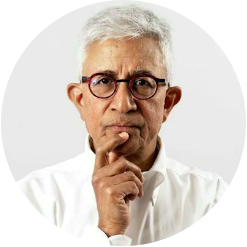
Valli Moosa
ICEF Steering Committee;
Deputy Chairperson of the Presidential Climate Change Commission;
Former President, International Union for Conservation of Nature and Natural Resources (IUCN)
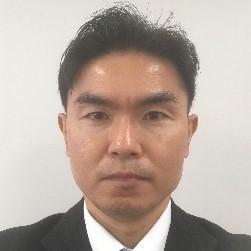
UKI Toshiharu
Director General, Agriculture and Food Technology Unit, Technology and Innovation Strategy Center, New Energy and Industrial Technology Development Organization (NEDO)
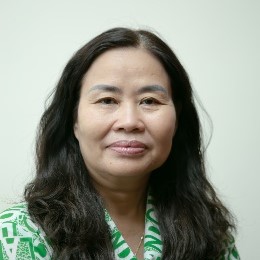
Thuy Thi Thanh Nguyen
Director General, Department of Science, Technology and Environment, Ministry of Agriculture and Rural Development;
Editor-in-Chief, Vietnam Journal of Agriculture and Rural Development, Ministry of Agriculture and Rural Development

Joko Tri Rubiyanto
Youth Policy Board - Asia Pacific, World Food Forum (WFF);
Food Project Consultant, RISE Foundation Indonesia
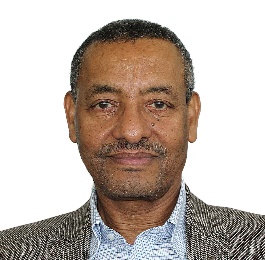
Dejene Tezera
Director, Division of Agribusiness, UNIDO
Thursday, October 10
Plenary Session 2
9:00 - 10:30
Innovative Finance
The vision of a decarbonized society is a global aspiration, and its realization will necessitate substantial financial resources and finance plays a pivotal role in this context. Sustained financial backing for the energy industry and financing for climate change mitigation transition endeavors in emerging market and developing economies, which currently contribute to approximately two-thirds of greenhouse gas emissions, are indispensable. Beyond public financing, innovative financing solutions that stimulate private sector investment are requisite.
The scale of investment required for this transformation is estimated to be around 2~5.7 trillion USD. Even with the introduction of new innovations, it is highly unlikely that the required annual amount will be reached. Emerging market and developing economies are also unlikely to generate the necessary resources from limited budgets if they are additionally burdened with excessive debt. Thus, climate financing mechanisms with new approaches are needed to meet the challenges of climate change with appropriate mitigation and to finance a portfolio of policies and projects that benefit the Global South in implementing decarbonization.
Besides addressing climate change, financial institutions are making strides in tackling natural capital issues such as biodiversity conservation and ecosystem protection. It is imperative to establish governance structures and processes that acknowledge and report on the financial risks and opportunities posed by biodiversity.
This session will explore innovative financing methods for emerging markets, green innovation, and decarbonization, including strategies for financing and linking finance to innovation. We will also scrutinize the financial risks and opportunities engendered by biodiversity.

Ismail Serageldin
ICEF Steering Committee;
Co-Chair of the Board of Nizami Ganjavi International Center (NGIC);
Emeritus Librarian of Alexandria;
Former VP of the World Bank
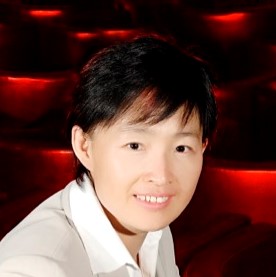
Changhua Wu
ICEF Steering Committee;
China / Asia Director,
Office of Jeremy Rifkin;
Chair, Governing Council,
Asia Pacific Water Forum
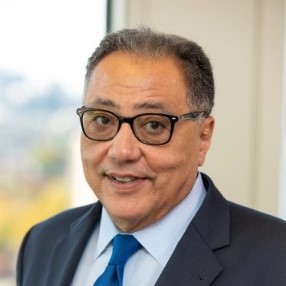
Hafez Ghanem
Senior Fellow, Policy Center for the New South;
Nonresident Senior Fellow, The Brookings Institution
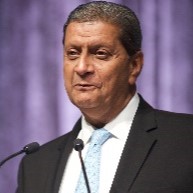
Amir A. Dossal
President and CEO, Global Partnerships Forum;
Founding Commissioner, Broadband Commission for Sustainable Development;
Former Distinguished Fellow, World Economic Forum Centre for Health and Healthcare
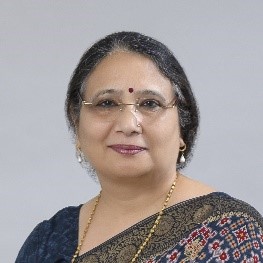
Parminder Chopra
Chairman and Managing Director, Power Finance Corporation Limited
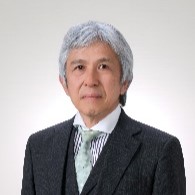
KONISHI Satoshi
CEO, Kyoto Fusioneering Ltd.;
Professor, School of Energy Science, Kyoto University;
Chairman, Japan Fusion Energy Council
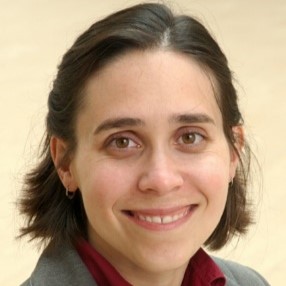
Rachel Denae Thrasher
Researcher, Boston University Global Development Policy Center
Special Sessions
10:45 - 11:45
ICEF Roadmap Project:Artificial Intelligence for Climate Change Mitigation 2.0
The ICEF 2023 Roadmap “Artificial Intelligence for Climate Change Mitigation” attracted considerable interest from governments, media and experts around the world. In 2024, artificial intelligence continues to be a very hot topic.
The ICEF 2024 Roadmap is a 2.0 version of the 2023 Roadmap, covering new topics we did not have a chance to cover last year including aviation, buildings, CCUS and nuclear power. It will also update topics covered last year including greenhouse gas emissions monitoring, the power sector, manufacturing, materials innovation, the food system and road transport.
In this session, co-authors of the “Artificial Intelligence for Climate Change Mitigation Roadmap 2.0" will present their draft roadmap and explore key questions related to the use of AI for decarbonization in the years ahead.

David Sandalow
ICEF Steering Committee;
Inaugural Fellow, Center on Global Energy Policy, Columbia University;
Co-Director, Energy and Environment Concentration, School of International and Public Affairs, Columbia University
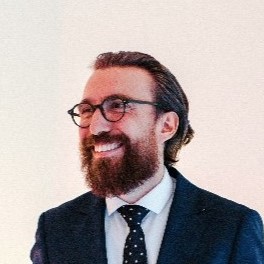
Alp Kucukelbir
Chief Scientist, Fero Labs;
Adjunct Professor, Columbia University
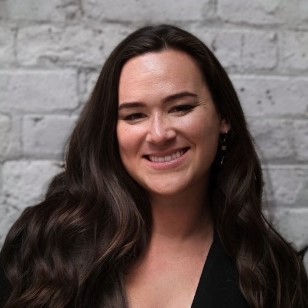
Mariah Carter
CEO, Lumora Technologies;
Former Senior Data Scientist, NRG Energy, Inc.
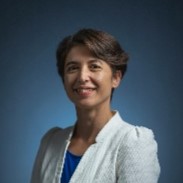
KUWAHATA Rena
Energy Analyst - Power System Transformation, International Energy Agency (IEA)
Keynote Sessions
12:55 - 13:00
Keynote 3
Mr. Francesco La Camera, Director-General of the International Renewable Energy Agency (IRENA), will present a video message on the six main innovation trends (renewable energy, indirect electrification with green hydrogen, infrastructure development in the energy transition, securing supply chains, inclusive innovation, and international cooperation) identified by the organization in line with previous ICEF discussions.
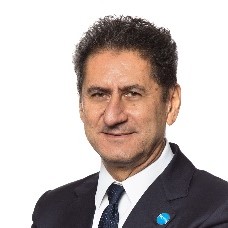
Francesco La Camera
Director-General, International Renewable Energy Agency (IRENA)
Technology Session 4
13:00 - 14:00
Future of Nuclear Energy
In recent years, as each country set ambitious GHG emission reduction targets, nuclear power has been getting more attention as a zero-emission base-load power source. In addition, as fossil fuels prices has soared globally since 2021, the contribution of nuclear power to energy security has also come to be recognized once again.
With nuclear power expected to expand in the future, each country is investing in so called “advanced reactors”. Furthermore, there is growing interest in using nuclear energy for non-electric applications, such as hydrogen production and heat utilization. On the other hand, in order to deploy nuclear reactors on a large scale, it is important to develop regulatory requirements which are not available for conventional reactors and measures to deal with radioactive waste.
In this session, we will discuss the approaches taken by businesses toward the commercialization of advanced reactors and various applications, and the challenges accompanying the deployment of them.

Eija-Riitta Korhola
ICEF Steering Committee;
Delegate of the Consultative
Commission for Industrial Change
European Economic and Social Committee
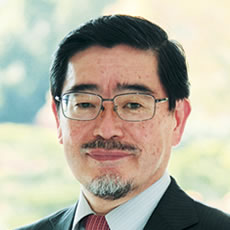
YAMAJI Kenji
ICEF Steering Committee;
President, Research Institute of Innovative Technology for the Earth (RITE);
Professor Emeritus, The University of Tokyo

TANAKA Nobuo
Chair, ICEF Steering Committee;
Former Executive Director, International Energy Agency (IEA);
CEO, Tanaka Global, Inc

IWATA Natsumi
Professor, Institute of Laser Engineering, Osaka University
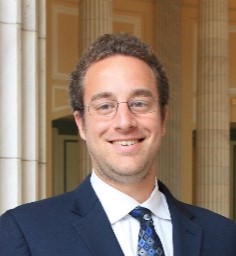
Jeff Waksman
Program Manager, US Department of Defense
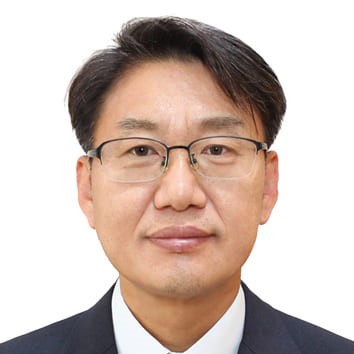
Ho cheol Shin
President, Central Research Institute of Korea Hydro and Nuclear Power Co.
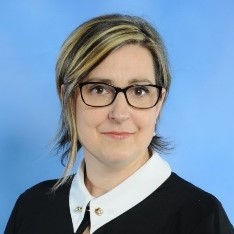
Diane Melissa Jessica Cameron
Head of Division of Nuclear Technology Development and Economics, NEA (OECD)

SEKIGUCHI Mina
Managing Partner, Resonancia LLC;
Non Executive Director, Penta Ocean Construction Company;
Auditor, Japan Atomic Energy Agency
Technology Session 5
14:15 - 15:15
Sustainable Marine Transport
In 2018, CO2 emissions from the international shipping sector accounted for more than 2% of global emissions. It has been estimated that the demand for marine transport will increase due to the growth of the global economy. Therefore, maritime transport needs to take measures to reduce emissions.
Decarbonization in the maritime sector is separately carried out for domestic and international shipping. On domestic shipping measures are taken by each country, whereas on international shipping, similar to the international aviation sector, the International Maritime Organization (IMO) is responsible for a consolidated agreement. Sustainable marine transport aims to increase the use of sustainable fuel, develop innovative technologies, and promote energy-efficient operations.
We will learn the latest sustainable marine technologies and policies from experts working on these issues and discuss the developments, policies, and investments that need to be accelerated to make marine transport sustainable. We will also discuss the adverse impact of banning Heavy Fuel Oil (HFO), the present main fuel in maritime transport, on global warming.

Georg Erdmann
ICEF Steering Committee;
Retired Chair of Energy Systems, Faculty of Process Engineering, Berlin University of Technology;
President of the Board, KSB Energie AG, Berlin
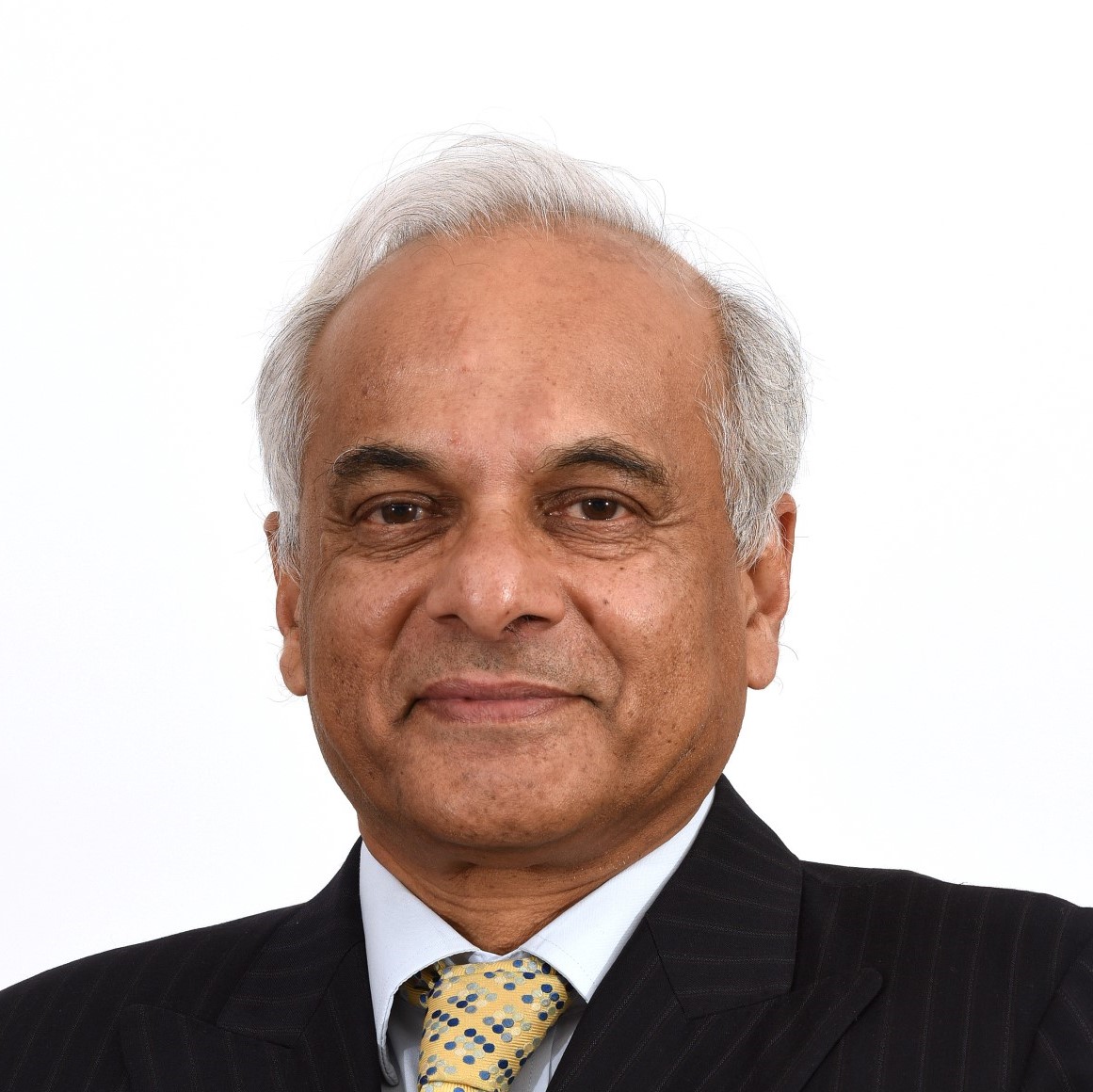
Vikram Singh Mehta
ICEF Steering Committee;
Chairman, Center for Social and Economic Progress (CSEP) Research Foundation
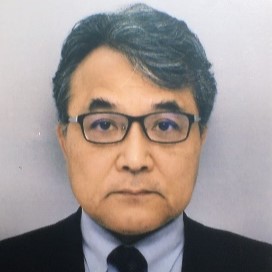
KAWAKITA Chiharu
Project Manager of Green Innovation Fund Project (Next-generation Ship Development), New Energy and Industrial Technology Development Organization (NEDO)
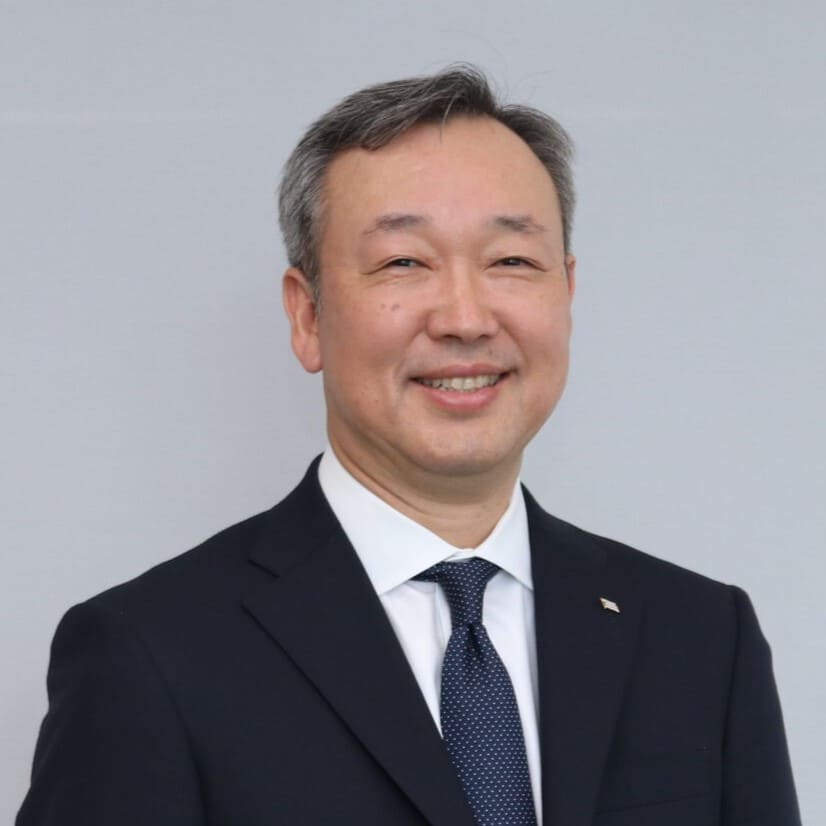
YOKOYAMA Tsutomu
Executive Officer, NYK LINE

Shu-Ling Chen
Director, Centre for Maritime and Logistics Management, Australian Maritime College, University of Tasmania;
Associate Professor, Australian Maritime College, University of Tasmania

Selma Brynolf
Researcher, Chalmers University of Technology
Special Sessions
15:30 - 16:30
Young Innovators
Bringing together the wisdom, expertise, experience, and resources of intergenerational talent to lead and drive an accelerated transition is critical to successfully achieving carbon neutrality in 2050. Generation Z is 26% of the world's population or about 2 billion people. A survey by asset manager Amundi and the Business Times found that 82% of Gen Z and nearly 2/3 of young millennial investors have exposure to environmental, social and governance (ESG) investments. As part of the impetus to foster collaboration with young innovators who will be the leaders of these future transformations, ICEF will hold a dialogue session with young innovators.
The session will bring together some of the world's most inspiring young and mid-career innovators to engage in a dialogue with members of the ICEF Steering Committee, who have played an important role in driving innovation and the clean energy revolution. The dialogue will focus on the diversity, richness, depth, and impact of innovation led by a young generation of experts in a wide range of scientific fields, from technology to policy reform, from deciphering the relationship between food, water, energy, and climate change to the socio-economic synergies between the clean energy revolution and the 17 Sustainable Development Goals of the UN 2030 Agenda.

Valli Moosa
ICEF Steering Committee;
Deputy Chairperson of the Presidential Climate Change Commission;
Former President, International Union for Conservation of Nature and Natural Resources (IUCN)

SAKANO Akira
ICEF Steering Committee;
Representative Director, Zero Waste Japan;
Co-Founder, Green innovation;
Director & CSO, ECOMMIT Co.,Ltd.

Shi Chen
Postdoctoral Researcher, Carnegie Science

Mariah Carter
CEO, Lumora Technologies;
Former Senior Data Scientist, NRG Energy, Inc.

Joko Tri Rubiyanto
Youth Policy Board - Asia Pacific, World Food Forum (WFF);
Food Project Consultant, RISE Foundation Indonesia
Closing Session
16:45 - 18:15
Closing Session
Quick Comments
(Takeaways, Comment for ICEF 2025) from each SC Member
Announcement of the Roadmap by David Sandalow
(ICEF Steering Committee)

Announcement of the Statement from the Steering Committee by YAMAJI Kenji
(ICEF Steering Committee)

Final Thoughts on the Event by TANAKA Nobuo
(Chair of ICEF Steering Committee)

Closing Remarks by SAITO Tamotsu
(Chairman of New Energy and Industrial Technology Development Organization (NEDO))
